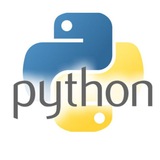⭐️6 Tips to Study Coding Effectively⭐️
by UFV Academic Success Centre
1. Don’t just read the code example—Type it out and then create a similar one
🔹 A code sample is the representation of the idea or program.
🔹 Type it in your own words to understand how the five components are working together.
🔹 Create a similar sample to understand the abstract of the program.
🔹 Try some code challenges from some well-known websites, such as leetcode, codewars, and
topcoders.
2. Practice and keep track of what you have learned
🔹 Practice makes perfect.
🔹 As a programmer, you often can have some repetitive tasks. Keeping track of what you learn will
help you quickly refer back to the tasks you have done.
🔹 Document what you have learned. Documentation is a good resource to help you look up the
algorithm/solution and repetitive tasks easily and increase your productivity rapidly.
3. Try to create, then build your own program
🔹 Apply what you have learned to a real-life example.
🔹 Building your own program brings you to the next level of program abstract and will help you feel
satisfied and accomplished with what you have learned.
🔹 When you come up with a solution, try a different approach. There is more than one right way to
do something, and searching for different solutions will help you develop your problem solving
skills.
4. Learn how to research and solve problems
🔹 Search for topics by specific keywords.
🔹 Learn how to research your problem when you get stuck. Some websites may help, such as
stackoverflow, stackexchange, github, and forums.
🔹 If you find a solution online, make sure you understand every line of code. You will learn more this
way rather than just copying and pasting it into your project.
5. Take a break while debugging
🔹 Consider taking break to clear your mind when you encounter difficult bug.
🔹 Stepping away for a few hours will allow you to return with a fresh perspective.
6. Things to avoid
🔹 Perfection: As a beginner, improving your coding skills and problem solving are more important
than making your code perfect. Seeking perfection will cause you to procrastinate instead of
progress. Remember that mistakes are opportunities to learn.
🔹 Comparison: Never compare your code style/knowledge with anyone else. You will end up being
disappointed and demotivated. Practice and trust yourself.
🔹 Complexity: Learn how to break a problem into smaller problems, so you can conquer it more
easily.
A good programmer is able to make a program simpler and less complex. Make it work first, then
make it right, finally make it fast. “Simplicity is the ultimate sophistication,” said Leonardo Da Vinci.
by UFV Academic Success Centre
1. Don’t just read the code example—Type it out and then create a similar one
🔹 A code sample is the representation of the idea or program.
🔹 Type it in your own words to understand how the five components are working together.
🔹 Create a similar sample to understand the abstract of the program.
🔹 Try some code challenges from some well-known websites, such as leetcode, codewars, and
topcoders.
2. Practice and keep track of what you have learned
🔹 Practice makes perfect.
🔹 As a programmer, you often can have some repetitive tasks. Keeping track of what you learn will
help you quickly refer back to the tasks you have done.
🔹 Document what you have learned. Documentation is a good resource to help you look up the
algorithm/solution and repetitive tasks easily and increase your productivity rapidly.
3. Try to create, then build your own program
🔹 Apply what you have learned to a real-life example.
🔹 Building your own program brings you to the next level of program abstract and will help you feel
satisfied and accomplished with what you have learned.
🔹 When you come up with a solution, try a different approach. There is more than one right way to
do something, and searching for different solutions will help you develop your problem solving
skills.
4. Learn how to research and solve problems
🔹 Search for topics by specific keywords.
🔹 Learn how to research your problem when you get stuck. Some websites may help, such as
stackoverflow, stackexchange, github, and forums.
🔹 If you find a solution online, make sure you understand every line of code. You will learn more this
way rather than just copying and pasting it into your project.
5. Take a break while debugging
🔹 Consider taking break to clear your mind when you encounter difficult bug.
🔹 Stepping away for a few hours will allow you to return with a fresh perspective.
6. Things to avoid
🔹 Perfection: As a beginner, improving your coding skills and problem solving are more important
than making your code perfect. Seeking perfection will cause you to procrastinate instead of
progress. Remember that mistakes are opportunities to learn.
🔹 Comparison: Never compare your code style/knowledge with anyone else. You will end up being
disappointed and demotivated. Practice and trust yourself.
🔹 Complexity: Learn how to break a problem into smaller problems, so you can conquer it more
easily.
A good programmer is able to make a program simpler and less complex. Make it work first, then
make it right, finally make it fast. “Simplicity is the ultimate sophistication,” said Leonardo Da Vinci.
👍4🔥1
NumPy_SciPy_Pandas_Quandl_Cheat_Sheet.pdf
134.6 KB
Cheatsheet on Numpy and pandas for easy viewing 👀
ibm_machine_learning_for_dummies.pdf
1.8 MB
Short Machine Learning guide on industry applications and how it’s used to resolve problems 💡
1663243982009.pdf
349.9 KB
All SQL solutions for leetcode, good luck grinding 🫣
git-cheat-sheet-education.pdf
97.8 KB
Git commands cheatsheets for anyone working on personal projects on GitHub! 👾
👍4🔥2❤1
Python Cheat sheet.pdf
1.2 MB
Python Cheat sheet.pdf
100 + Python Interview Questions For Programmers and Dev.pdf
483.9 KB
100 + Python Interview Questions For Programmers and Dev.pdf
❤1👍1🔥1
PHP_7_Programming_Cookbook.pdf
13.5 MB
PHP 7 Programming (Packthub)
Py_DS_Algo.pdf
1.2 MB
Py_DS_Algo.pdf
❤1👍1🔥1
